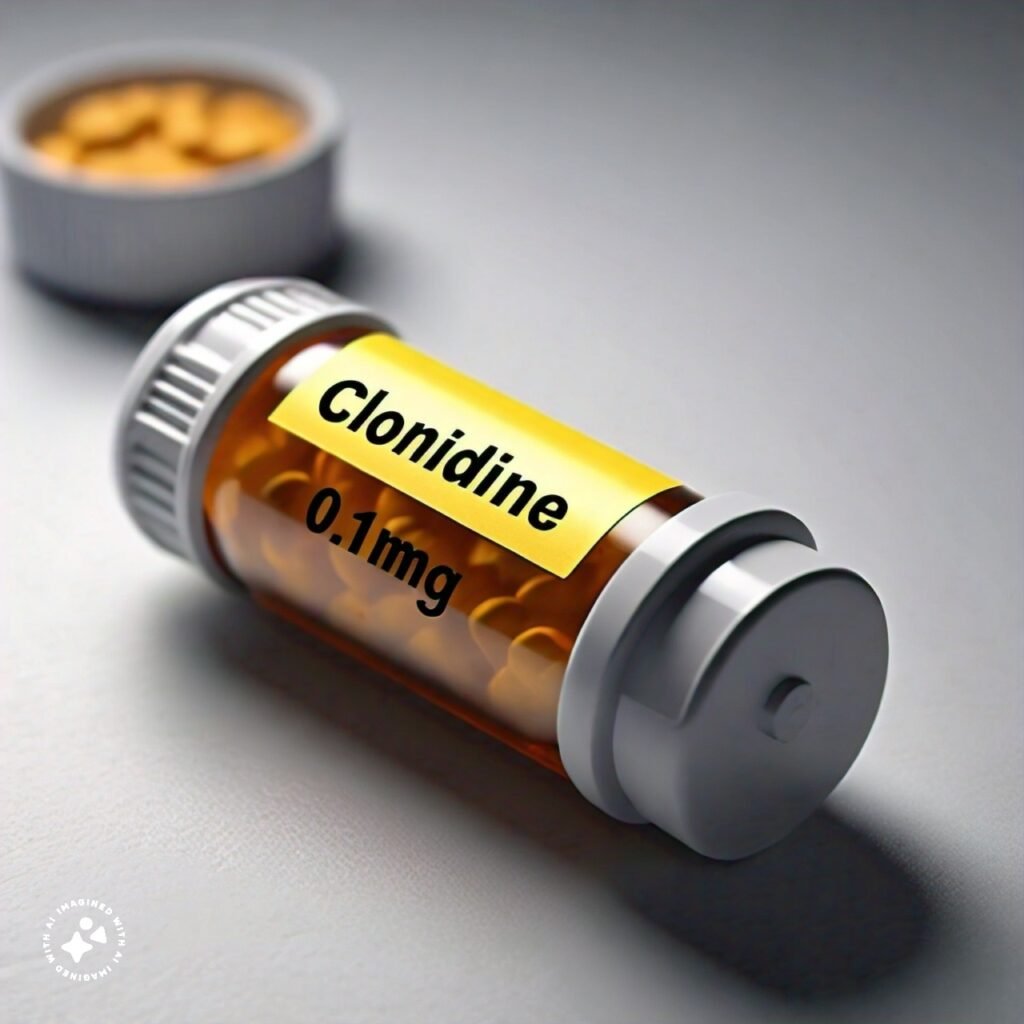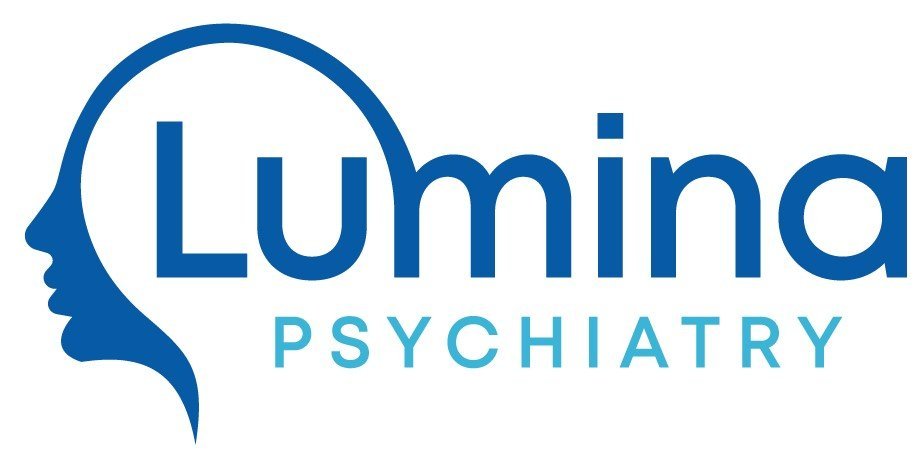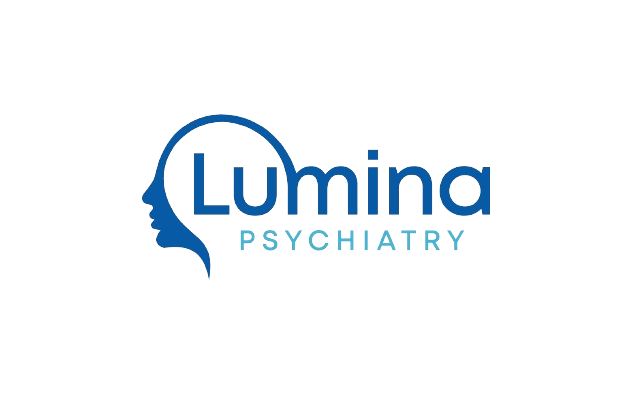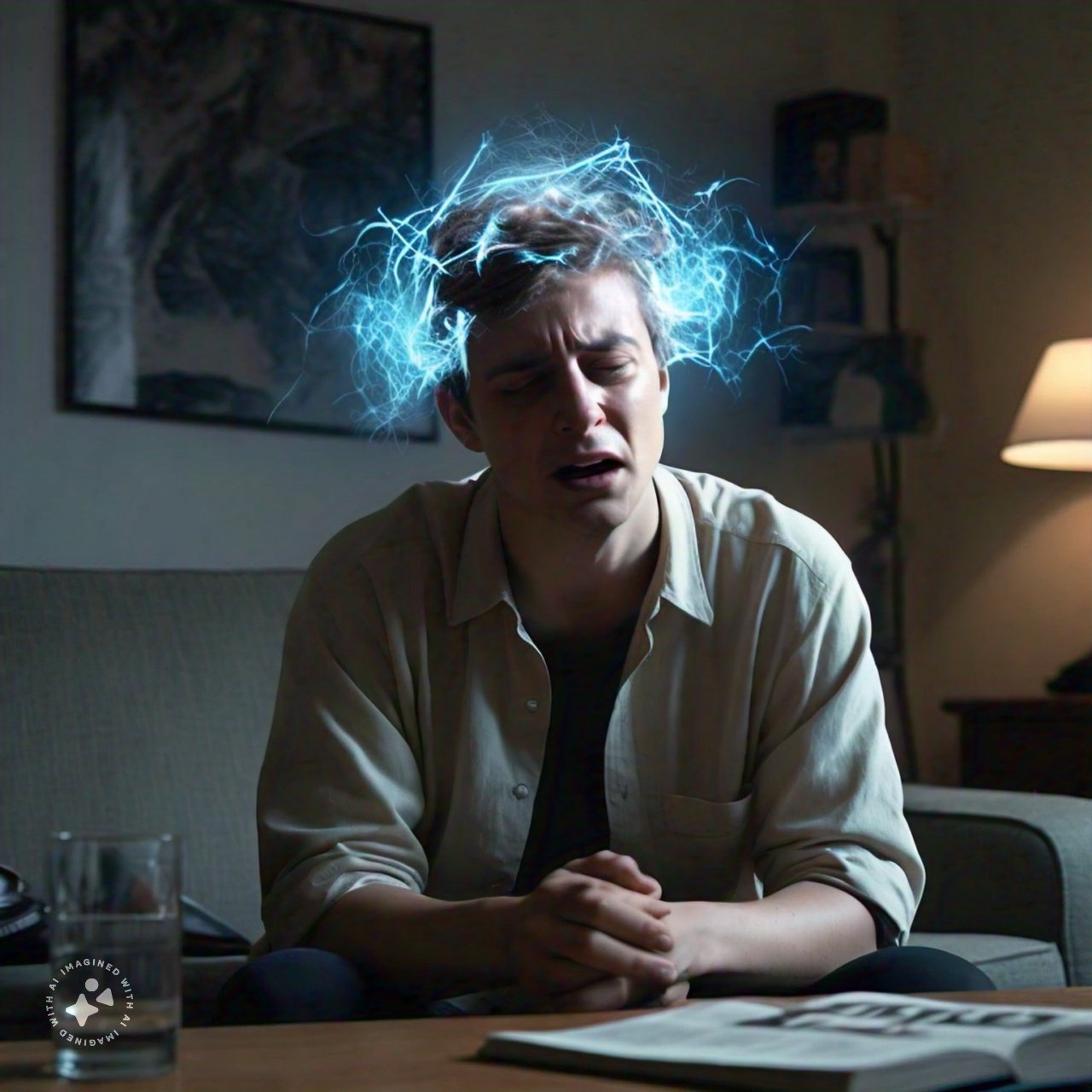Attention-Deficit/Hyperactivity Disorder (ADHD) affects millions globally, disrupting daily life and hindering the ability to focus, control impulses, and maintain organization. As a condition that presents significant challenges in personal and professional settings, finding effective treatments remains a priority for healthcare providers and patients alike.
Clonidine, traditionally used to treat high blood pressure, has emerged as a promising option for managing ADHD symptoms. It targets specific pathways in the brain to enhance attention and reduce hyperactivity and impulsivity. At Lumina Psychiatry, we integrate Clonidine into comprehensive treatment plans tailored to the unique needs of each individual. Our approach ensures that patients not only receive medication but also benefit from continuous support and guidance to optimize their treatment outcomes.
What is Clonidine?

History and Development
Clonidine first appeared in the medical scene as a treatment for high blood pressure. Over time, researchers and clinicians discovered its potential benefits beyond just managing blood pressure. They noted its calming effects on the nervous system, which led to trials for other uses, including the treatment of ADHD. By affecting certain brain functions, Clonidine showed promise in reducing symptoms of hyperactivity, impulsivity, and inattention, marking its transition into a multi-purpose medication.
How Clonidine Works
Clonidine works by stimulating alpha-2 adrenergic receptors in the brain. This activation reduces the release of norepinephrine, a neurotransmitter associated with arousal and stress responses, which often exacerbate ADHD symptoms. By modulating this neurotransmitter’s activity, Clonidine helps to stabilize attention levels and control hyperactivity and impulsivity, making it a viable treatment option for ADHD. This targeted approach in the brain is why many healthcare professionals consider Clonidine effective for managing ADHD symptoms, especially in individuals who may not respond well to more common stimulant medications.

Clonidine Dosing
Clonidine dosing for ADHD treatment requires careful consideration and typically starts at a low dose, with gradual increases to find the optimal therapeutic effect while minimizing side effects. For children, the usual starting dose is 0.05 mg taken at bedtime, to help mitigate the drowsiness it can cause. Depending on the patient’s response and tolerance, healthcare providers may increase the dose slowly, often at weekly intervals. Adults might start at a similar dose but could require adjustments based on their specific needs and the presence of other medical conditions.
Clonidine in the Treatment of ADHD
Benefits of Clonidine for ADHD
- Non-Stimulant Option: Clonidine is a non-stimulant, making it suitable for patients who may experience anxiety or sleep disturbances from stimulant medications.
- Effective for Hyperactivity and Impulsivity: It is particularly effective at reducing hyperactivity and impulsivity, which are core symptoms of ADHD.
- Promotes Better Sleep: Due to its sedative effects, clonidine can help improve sleep quality in patients with ADHD, who often struggle with sleep issues.
- Useful for Comorbid Conditions: It can be beneficial for patients with co-occurring conditions such as Tourette syndrome or certain anxiety disorders.
- Lower Abuse Potential: Clonidine has a lower potential for abuse compared to stimulant medications, which is a significant consideration for long-term use.
- Adjunctive Therapy: It can be used alongside stimulant medications to enhance symptom control, potentially allowing for lower doses of stimulants.
- Different Mechanism of Action: Clonidine works on alpha-2 receptors in the brain, offering a different therapeutic approach compared to stimulants, which can be helpful for those who do not respond to typical ADHD medications.
Potential Side Effects
However, Clonidine can introduce side effects, although most are manageable.
Common Side Effects
- Drowsiness or sedation: Can impair alertness and motor skills.
- Dry mouth: Often reported by those taking clonidine.
- Dizziness or lightheadedness: Particularly when getting up quickly from a sitting or lying position.
- Constipation: May cause decreased bowel motility.
- Headache: A frequent side effect experienced by some users.
Serious Side Effects
- Low blood pressure (hypotension): Can lead to dizziness and fainting.
- Slow heart rate (bradycardia): Potentially dangerous reduction in heart rate.
- Mental health effects: Includes depression, confusion, or hallucinations.
- Withdrawal symptoms: Can occur if the medication is stopped abruptly, including spikes in blood pressure and heart rate.
- Allergic reactions: Rare but may include severe reactions like swelling or anaphylaxis.
Rare Side Effects
- Eye issues: Dryness or changes in vision.
- Skin reactions: Includes rash, itching, or hives.
Dosage and Administration
Regarding dosing, Clonidine must be administered carefully to balance efficacy with the potential for side effects. Starting doses typically hover around 0.05 mg at bedtime, particularly for children, to leverage the drowsiness effect to aid sleep. Adults may follow a similar protocol, with adjustments tailored to their specific circumstances and health conditions. Patients should adhere closely to the dosing regimen prescribed by their healthcare providers and report any unusual symptoms or ineffective control of ADHD symptoms. Regular consultation ensures that the dosing strategy evolves in step with the patient’s changing needs and treatment response.
Real-world Applications
Clinical studies and case reports have consistently demonstrated Clonidine’s effectiveness in managing ADHD symptoms. Researchers have documented numerous instances where Clonidine has significantly improved attention spans, reduced impulsivity, and curbed hyperactivity among patients. For example, a landmark study published in the Journal of Pediatrics outlined how Clonidine helped children with ADHD experience fewer behavioral issues and enhanced academic performance. Additionally, ongoing trials are exploring the long-term effects of Clonidine, particularly in combination with other medications, to optimize treatment protocols further.
Case reports add a personal dimension to these findings. One notable report described a teenager who struggled with severe ADHD symptoms and did not respond well to standard stimulant treatments. After switching to Clonidine, his symptoms improved markedly without the side effects that stimulants had previously induced. This case, among others, highlights Clonidine’s potential as a crucial part of ADHD management, particularly for patients who require non-stimulant options.
Lumina Psychiatry’s Approach to Using Clonidine in ADHD Treatment

Personalized Treatment Plans
Lumina Psychiatry excels in crafting personalized treatment plans for ADHD patients using Clonidine. The team begins by thoroughly assessing each patient’s unique symptoms and health history. We then tailor the Clonidine treatment to align with individual needs, maximizing benefits while minimizing side effects. This customization ensures that each patient receives the most effective care suited to their specific condition.
Ongoing Support and Monitoring
Moreover, Lumina Psychiatry provides robust ongoing support and monitoring. The clinic continuously evaluates the effectiveness of the treatment, adjusting dosages as necessary to optimize outcomes. We also closely monitor for any potential side effects, ready to make immediate adjustments. This proactive approach guarantees that patients not only start well but also maintain their progress effectively throughout their treatment journey.
Conclusion
Clonidine offers significant benefits for managing ADHD, enhancing focus and reducing hyperactivity and impulsivity effectively. It stands out as a viable alternative for those seeking non-stimulant treatment options. At Lumina Psychiatry, we excel in adapting Clonidine treatments to the unique needs of each patient, ensuring both efficacy and safety. We encourage anyone considering this treatment to consult with healthcare providers at Lumina Psychiatry or similar institutions. A personalized approach will not only address your symptoms more effectively but also optimize your overall health management.




